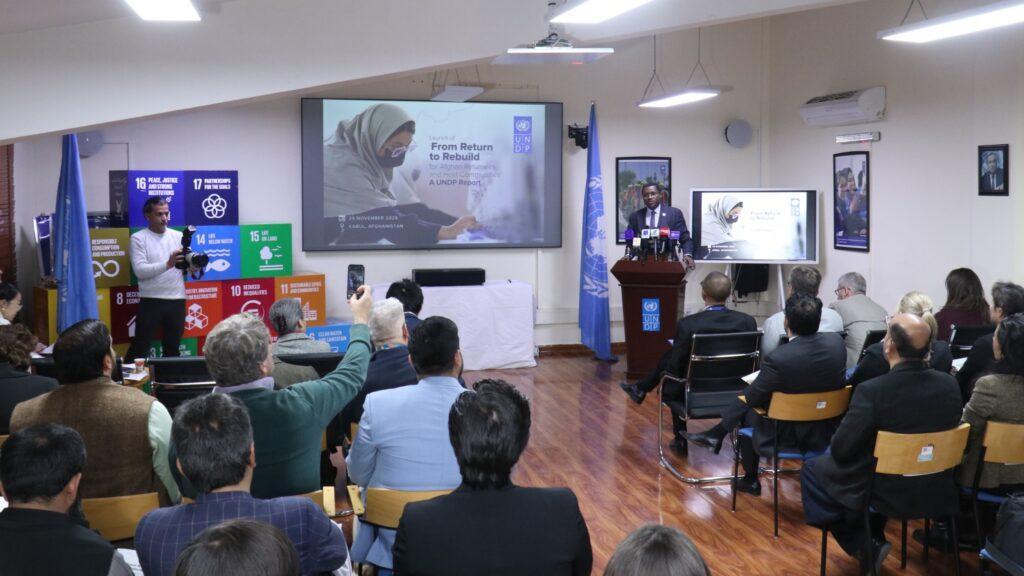
UNDP: Return Of Afghan Refugees Mounts Pressure On“Areas Of Return”
KABUL (Pajhwok): The United Nations Development Programme (UNDP) says the return of 2.3 million Afghan refugees has placed significant pressure on Afghanistan's recovery efforts.
It has called for increased investment in return areas and the lifting of restrictions on women's employment.
In a report published on Monday, UNDP warned that Afghanistan's“areas of return” are under severe pressure, with communities struggling to absorb millions of returning individuals amid economic contraction, climate shocks and recent earthquakes.
The findings are based on a nationwide survey of nearly 49,000 Afghan households, including more than 1,500 returnee families.
The report, From Return to Rebuild for Afghan Returnees and Host Communities, indicates that returnees are resettling in already impoverished eastern and northern districts, intensifying competition for jobs, housing, water and other basic services. This has stretched local coping capacities beyond their limits. Access to healthcare, safe drinking water and education has sharply declined, especially in rural settlements and for women and girls.
According to the study, nine out of ten Afghan households have resorted to negative coping strategies, such as reducing meals, selling assets and relying on loans. Debt is widespread across all population groups, affecting 88% of returnee households and 81% of host community households.
The report also highlighted that recent devastating earthquakes in Nangarhar, Kunar and Samangan provinces, along with flash floods and drought this year, have taken a heavy toll on lives and livelihoods. These disasters have caused extensive damage to homes and infrastructure, further deepening vulnerabilities among both displaced and host populations. Women-headed households are among the worst affected.
“Afghanistan's returnee and host communities are under immense strain,” said Kanni Wignaraja, UN Assistant Secretary-General and UNDP Regional Director for Asia and the Pacific.
“In some provinces, one in four households depend on women as the main breadwinner. So, when women are prevented from working, families, communities and the country lose out. I am especially alarmed by restrictions on women staff working in humanitarian and recovery operations. Cutting women out of frontline teams means cutting off vital services for those who need them most, including returnees and victims of natural disasters.”
However, the report notes that targeted investments are making a positive impact in areas of return. UNDP and its partners are implementing area-based recovery programmes across eastern, northern and central regions, improving access to energy, healthcare, water and jobs for both returnees and host communities. These efforts form part of UNDP's broader humanitarian-development-peace nexus approach, working in collaboration with UNHCR, IOM and UN-Habitat under the Durable Solutions Working Group.
“Area-based recovery works,” said Stephen Rodriques, UNDP Resident Representative in Afghanistan.“By linking income opportunities, basic services, housing and social cohesion, it is possible to ease pressure on high-return districts and reduce the risk of secondary displacement.”
The report reiterated the urgent need to remove all restrictions on women.
kk

Legal Disclaimer:
MENAFN provides the
information “as is” without warranty of any kind. We do not accept
any responsibility or liability for the accuracy, content, images,
videos, licenses, completeness, legality, or reliability of the information
contained in this article. If you have any complaints or copyright
issues related to this article, kindly contact the provider above.

















Comments
No comment